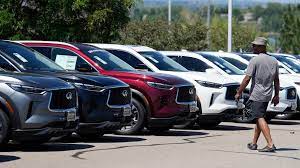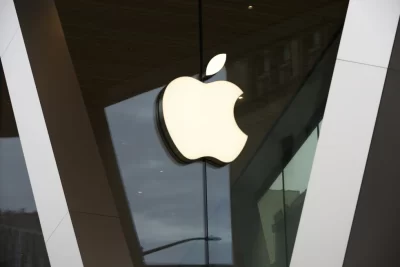
The past few years have been rough for used-vehicle buyers due to higher prices, less inventory and rising interest rates. Compared to what people normally expect to pay from buying used, it’s fair to say the market has been discouraging. But there seems to be at least a dim light at the end of the tunnel according to Edmunds’ latest Used Vehicle Report.
Edmunds found the average transaction price for a used vehicle was $28,935 in the third quarter. While that’s still way above the average of $20,085 from about five years ago, it has dropped from last year’s record high. In addition, new vehicle prices continue to rise, making used vehicles more appealing for shoppers on a smaller budget. Broadly, the difference in average price between new and used is back to how it was in 2019. Even so, it’s still wise for prospective used vehicle buyers to make sure they’re getting the best value for their money. The experts at Edmunds have compiled six important tips to help you with your next purchase.
COMPARE PRICES TO AVOID OVERPAYING
Finding out if you’re getting a good price on a used car isn’t as hard as you think. There are multiple online sites like Edmunds that compare the price of the vehicle you are shopping for with others that are for sale in your area. By simply searching for the make and model you want, you’ll know if you are paying above, below or at the market value of the vehicle.
EXPAND YOUR SEARCH
CONSIDER OTHER TYPES OF VEHICLES
If there is a particular brand, age and mileage you typically aim for when buying a used vehicle, you might want to reconsider your usual approach. With higher prices and interest rates, opting for a higher-mileage or older model will help get you to the monthly payment you want. However, if you decide to do so, make sure to get a vehicle history report to ensure it has a clean title and has had regular maintenance visits. A prepurchase inspection from a mechanic can also help spot potential issues.
If you prefer a near-new vehicle, then consider a different type of vehicle or brand to save money. Trucks and SUVs are popular and often demand a higher price than sedans or subcompact SUVs. If you don’t need a truck or large SUV, you can save a lot of money by getting something smaller.
GET PREAPPROVED FOR AN AUTO LOAN
Getting the lowest interest rate possible will lower your monthly payments. Instead of taking the dealership’s word that it’s offering the best rate, get preapproved by a local bank, credit union or online lender before going to the dealership. Then compare all the rates to ensure you’re getting the lowest one. If you aren’t happy with the rate you received, you might be able to refinance the loan later if rates drop.
MAXIMIZE THE VALUE OF YOUR TRADE-IN
There’s good news if you currently own a car with equity. Used car prices are still high, but that means you should get more for your car, which will help offset the higher purchase price of your next vehicle. Get a free vehicle appraisal through online sites like Edmunds before you get a trade-in offer from your dealership to make sure you’re getting a fair value. If you don’t have a trade-in or if it doesn’t have equity, consider putting more money down to get the monthly payment you want.
SHOP CERTIFIED PRE-OWNED
It might be harder to find certified pre-owned (CPO) vehicles in today’s market, but if you locate one within your budget, we recommend going for it. Not only do CPO vehicles undergo thorough inspections and additional reconditioning and offer extended warranties, they could potentially qualify for interest rates similar to those for new cars. Although CPO vehicles are more expensive, the lower interest rate and longer warranty could offset the higher price over the course of ownership
EDMUNDS SAYS
Most used-car shoppers will have a more difficult time finding the deal they want in 2023 and 2024. But if you make a few compromises on the type of vehicle you want, research how much your trade-in is worth, and compare interest rates and local prices, you can feel much better about your purchase.







